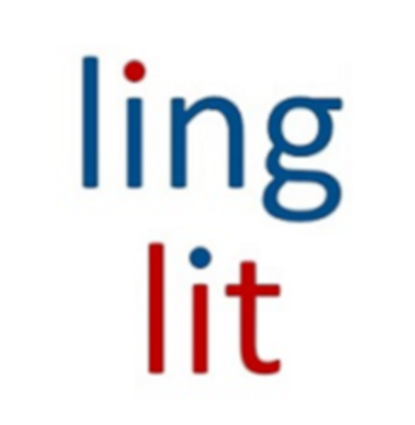Digital Editing and Cultural History of the Middle Ages
Lead: Junior-Prof. Dr. Michael Schonhardt
Junior professorship for ‘Digital Editing and Cultural History of the Middle Ages’ at the Institute of Linguistics and Literary Studies (Department of Social and Historical Sciences) in cooperation with the Academy of Sciences and Literature Mainz.
The professorship serves to promote cooperation between TU Darmstadt and the Academy in Mainz in the field of knowledge management and AI applications in the cataloguing of cultural assets and to strengthen the ‘Burchard's Decree Digital’ edition project.
The research project supervised by the Academy of Sciences and Literature focuses on the influential canon law collection of Bishop Burchard of Worms (1000-1025), which is one of the most important ecclesiastical law books of the Middle Ages. The researchers will analyse the manuscript tradition, compile a reliable critical edition for the first time and examine the wide distribution and reception of the Decretum Burchardi.
The academy professorship aims to integrate artificial intelligence into the work processes of editing medieval texts within the project. New methods will be developed using these technologies that meet both editorial standards and the scientific requirements of working with historical data.
Source: https://www.gugw.tu-darmstadt.de/termine_details_fb2_132672.de.jsp
Digital Philology – German Literary Studies
Lead: Prof. Dr. Evelyn Gius
The subject area “Digital Philology – Modern German Literary Studies” is one of the subject areas at the interface of the humanities and digitisation. The focus is on digital research on texts – from manual, computer-assisted annotation of individual texts to corpus-based analysis using suitable algorithms. Regardless of the method used, it is always about a humanities approach and the possibilities offered by information science. Therefore, in addition to the use of digital methods, reflection on this approach is also central: What actually happens when we analyse our texts with the help of computers?
German Studies – Computational Philology and Medieval Studies
Lead: Prof. Dr. Andrea Rapp
The subject area “German Studies – Computational Philology and Medieval Studies” brings together a traditional branch of research in German studies with a young discipline that investigates new, computer-assisted methods and procedures in the humanities and cultural studies. The subject of German medieval studies concerns itself with the language and literature of the German-speaking Middle Ages from the 8th to the 16th century. The focus is on codicology and palaeography, multimodal text-image relations, digitisation and corpus construction, linguistic variance and variation, ontologies, edition philology, lexicography, annotation procedures and research (data) infrastructures.
German Studies – Digital Linguistics
Lead: Prof. Dr. Marcus Müller
Digital linguistics" deals with digital or digitised language data. It develops procedures for collecting, processing, structuring, annotating and analysing language in digital form. Our central subject is therefore digital corpora, which can represent very different genres, e.g. newspaper texts, political debates, scientific essays, tweets, online forums, blogs and much more.
German Studies – Digital Literary Studies
Lead: Prof. Dr. Thomas Weitin
Digital literary studies", the most recent field in philology, is characterised by the combination of conventional and digital methods. On the basis of close reading, literary-historical study of sources and cultural-scientific contextual competence, research questions are abstracted in such a way that they can be operationalised for the use of digital tools. Digital literary studies changes the style of thinking in dealing with theories and interpretations and proves itself as a critical instance between text and data analysis.
Humanities Data Science and Methodology (HDSM)
Lead: Prof. Dr. Julianne Nyhan, FRHistS
The Chair of Humanities Data Science and Methodology studies the affordances and limitations of the application of digital methods to the Humanities. It also seeks to understand more about the social, cultural, intellectual and technical processes and conditions that have shaped the remediation and analysis of Humanities and Cultural Heritage sources as data.
Corpus and Computational Linguistics, English Linguistics
Lead: Dr. Sabine Bartsch
The research area “Corpus and Computational Linguistics, English Philology” is concerned with the modelling of linguistic phenomena at all levels of linguistic organisation from phonology, lexis and grammar to semantics and discourse in research and teaching. In addition to insights into language, the focus of interest is on the construction and annotation of electronic text corpora as well as the development and implementation of computer-based methods and workflows for linguistic research using electronic corpora.
Theoretical Philosophy and ERC Synergy Grant „The Cultures of the Cryosphere."
Lead: Prof. Dr. Alexander Friedrich
The research area of ‘Theoretical Philosophy’ combines traditional philosophical and cultural studies research with innovative digital methods. The focus is on the application of natural language processing (NLP) technologies for researching historical-semantic, hermeneutic and linguistic-philosophical questions. The research area develops and tests new methods for computer-assisted analysis of conceptual and metaphorical structures in historical and contemporary texts.
The ERC Synergy Grant project „The Cultures of the Cryosphere. Infrastructures, Politics, and Futures of Artificial Cooling“ (2024–2030), based at the department, investigates the structure and dynamics of basic cultural concepts in cooperation with six other partner institutions. The focus is on the connection between historical semantics of artificial cold and technological, biopolitical and socio-economic developments. Together with the Language Technology Group at the University of Hamburg, the research group at the department develops innovative methods and tools for digital hermeneutics and conceptual history.


